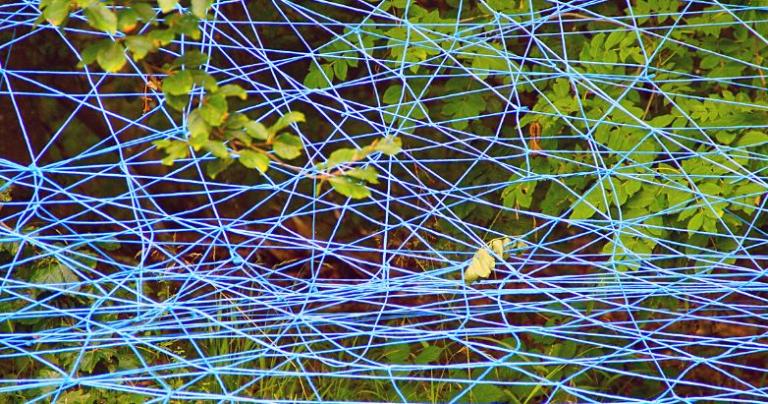
‘Spiritually independent.’ That’s what a man called himself in response to my article about dropping the ‘not religious’ label.
My first reaction was to nod in agreement.
Yeah, I thought, instead of being ‘spiritual but not religious,’ declaring spiritual independence makes sense. Standing outside of institutions, thinking for yourself, choosing passages to live by, rejecting outdated teachings… all of those are hallmarks of independence.
Not So Fast
Since I read Thinking, Fast and Slow by Daniel Kahneman, I’ve trained myself to take my initial reactions with a grain of salt. Those are my ‘fast’ responses, based on mental shortcuts and predetermined ways of thinking. In contrast, thinking ‘slow’ allows me to examine ideas from more than one perspective.
Often, I’ll agree with my initial reactions; other times, I’ll reconsider.
And that’s what I did in this case.
The more I thought about what it meant to be spiritually independent, the less it made sense to me.
Why I Dropped the ‘Not Religious’ Label
It goes back to why I dropped the ‘not religious’ label in the first place.
It wasn’t because I was running back into the churches and temples, not because I embraced the institutions or the politics that came with those, nor because of my extreme need for conformity.
No.
I dropped the ‘not religious’ label because I realized that without preservation, only a few of the spiritual truths I hold dear today would have entered my consciousness. I realized that I am indebted to scriptures and oral traditions alike. Without them, I would not be where I am today.
A Personal Journey
Spirituality is a personal journey, an inner exploration of sorts, but it is highly influenced by ideas and beliefs.
For example, why would someone go into a cave for twelve years unless they believed that doing so might reveal something?
There are beliefs and ideas behind every spiritual practice and ritual; if you do this, then this. This means that, even though a person is on an individual journey, they are most likely following a map or trying something because they heard, saw, or read about it somewhere.
Nothing New Under the Sun
One of the misconceptions we labored under in the New Age movement was that we were doing something new. In fact, we were mostly borrowing from other traditions. My extensive research has corroborated this. Everything we are doing today in the spiritual realm, even though the combinations may be different, has been done in some form in the past.
Sidenote: What irked me most about New Age teachers was when they presented me with their ideas as new truths and paradigms; then, I found out later that they were merely rephrasing ideas from ancient scriptures or oral traditions.
Standing On the Shoulder of Giants
Isaac Newton famously said: “If I have seen further, it is by standing on the shoulders of Giants.” Granted, he was writing about the evolution of science, not spirituality, but the same principle applies.
Without laborious notes from spiritual explorers, especially in the mystical traditions of Yoga (Hinduism), Sufism (Islam), Kabbalism (Judaism), and Mysticism (Christianity), we would not have the same spiritual understanding that we have today.
What sets the present age apart from other times is that we have unprecedented access to everything that has come before. We can study ideas and traditions from every part of the world and every age, truly standing on the shoulders of giants.
We Are Interdependent
My conclusion is that we are more spiritually interdependent than independent.
Take language, for example. As I sit here thinking and typing, I am using a socially constructed tool. I did not create language, yet I cannot think without it. My thinking is interdependent.
And the more I think (interdependently), the more I realize that all spirituality is interdependent in one way or another. Humans are communal beings. We cannot help but be influenced by each other.
Spiritual Paradox
Look. I get it. I come from a small island originally inhabited by Vikings seeking their independence. Being fiercely independent is a part of my DNA. All my life, I have sought spiritual autonomy. It pains me to have to admit that I am interdependent, but I can’t unsee what I’ve seen through this contemplation. The cat is out of the bag.
It’s a realization that adds to my list of spiritual paradoxes. We are simultaneously independent and interdependent beings. In our aloneness, we are together, and when we are together, we are alone.
Acknowledging interdependence leaves room for independent thoughts and experiences, but it’s more like cooking than 3-D printing. In cooking, we use the ingredients we already have access to creatively, whereas 3-D printing allows us to create anything from scratch. In spirituality, we have the ingredients of body, mind, spirit, language, and the thoughts, insights, and beliefs that have come before. Being spiritually independent means using those interdependent ingredients independently.
Plus, our experiences will always be our own.
Gudjon Bergmann
Author and Mindfulness Teacher
Amazon Author Profile
Recommended books:
- Monk of All Faiths: Inspired by The Prophet (fiction)
- Spiritual in My Own Way (memoir)
- Co-Human Harmony: Using Our Shared Humanity to Bridge Divides (nonfiction)
- Experifaith: At the Heart of Every Religion (nonfiction)
- Premature Holiness: Five Weeks at the Ashram (novel)
- The Meditating Psychiatrist Who Tried to Kill Himself (novel)
Picture: CC0 License
















